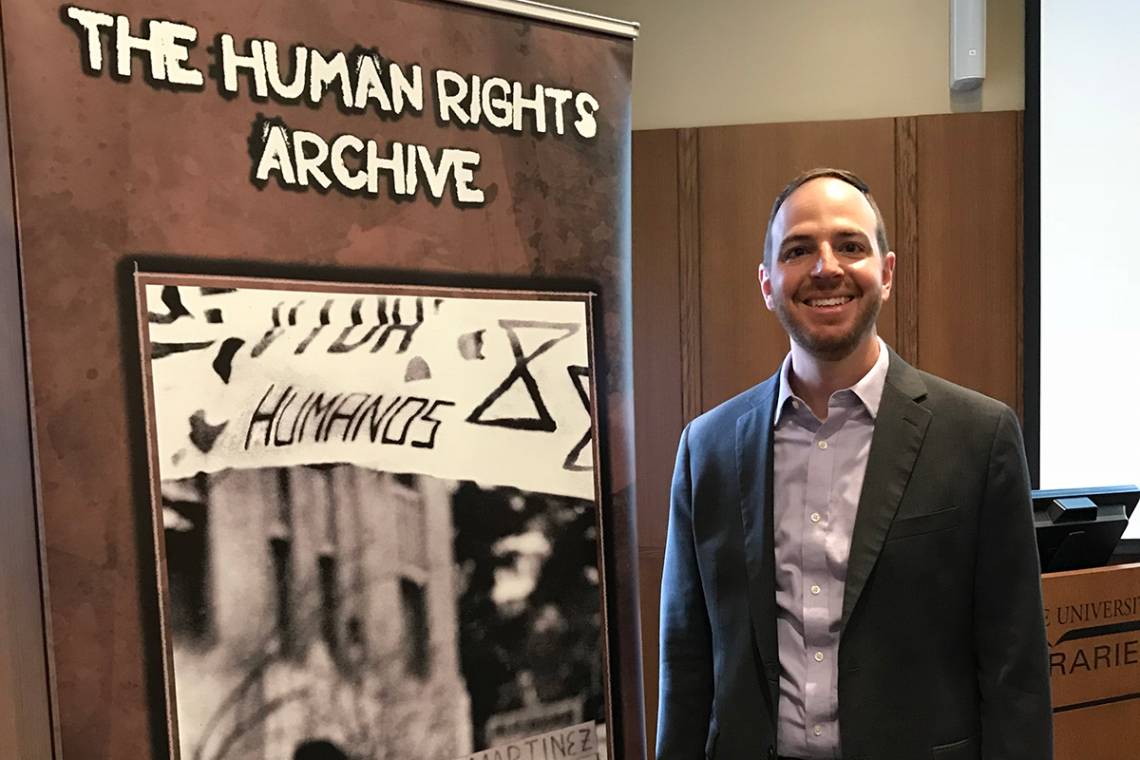
Matt Eisenbrandt, author of the book Assassination of a Saint: The Plot to Murder Óscar Romero and the Quest to Bring His Killers to Justice, visited Duke Tuesday to receive the 2017 Méndez Book Award and discuss his book.
Assassination of a Saint traces the story of how an international team of lawyers, private investigators and human-rights experts fought to bring justice for the archbishop, killed by members of an El Salvadoran death squad. Nearly four decades later, Romero’s killers remain free, but Eisenbrandt’s book names many of the conspirators.
Q: What’s your hope for this book’s contribution to the ongoing case of Archbishop Romero in El Salvador?
EISENBRANDT: An amnesty law that prevented prosecutions in El Salvador has been lifted, and there are some cases that are starting to open up in the courts there. Archbishop Romero’s case has been reopened. In think that some of the materials and information in my book may have been given to the prosecutors. Unfortunately, that case at the moment is not really moving. I am hoping that down the road that case will start moving and some people will be held accountable, but we will have to wait and see.
Q: How does this award benefits you and helps you to advance your research interests?
EISENBRANDT: This award is a wonderful recognition of the importance of Romero’s story and the need for accountability in his case. His murder was such an important moment in El Salvador’s history, he is such an iconic figure and yet, for someone who was so important for his country, no one has ever gone to jail for his murder, nobody has ever held accountable in El Salvador.
My hope is that the award can bring greater attention to this issue and greater attention to Romero and the importance of the issue of impunity in El Salvador. I am very thankful for the award, I am glad that the judges saw that this was an important topic and my hope is that this can bring a little bit more prominence to Romero’s case.
Q: What’s next for you and your research on the case?
EISENBRANDT: I think with Romero’s canonization, probably later this year or early next year, his name will be in the news again and hopefully that will give some more opportunities to talk about the book and his assassination.
For me personally, I want to keep writing. I have some ideas for what my book will be but I haven’t had a chance to sit down and work through those. This book has given me the motivation and the reinforcement to keep writing, but I’ll need to find time to do that alongside my work. I’m hopeful something will come through.